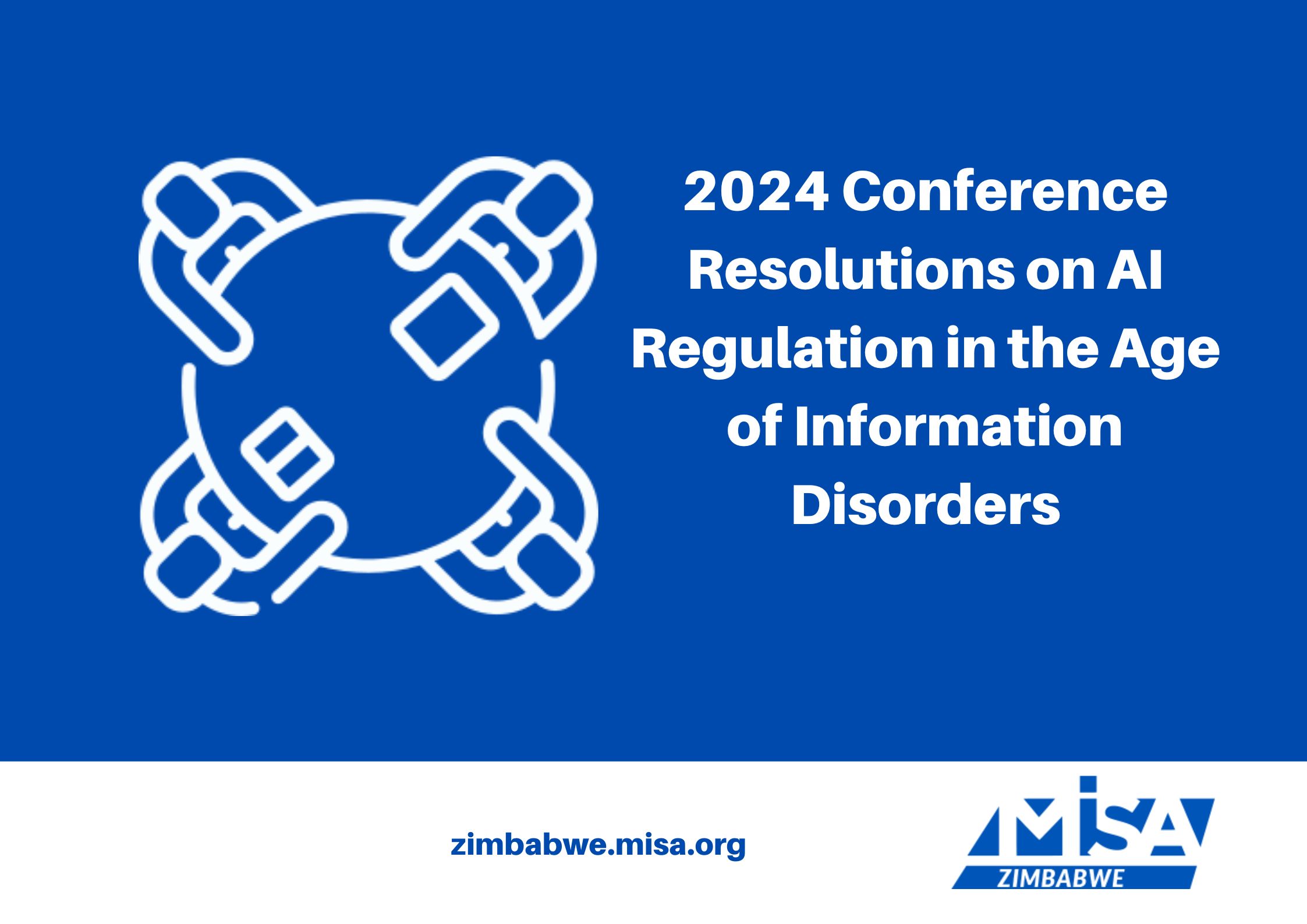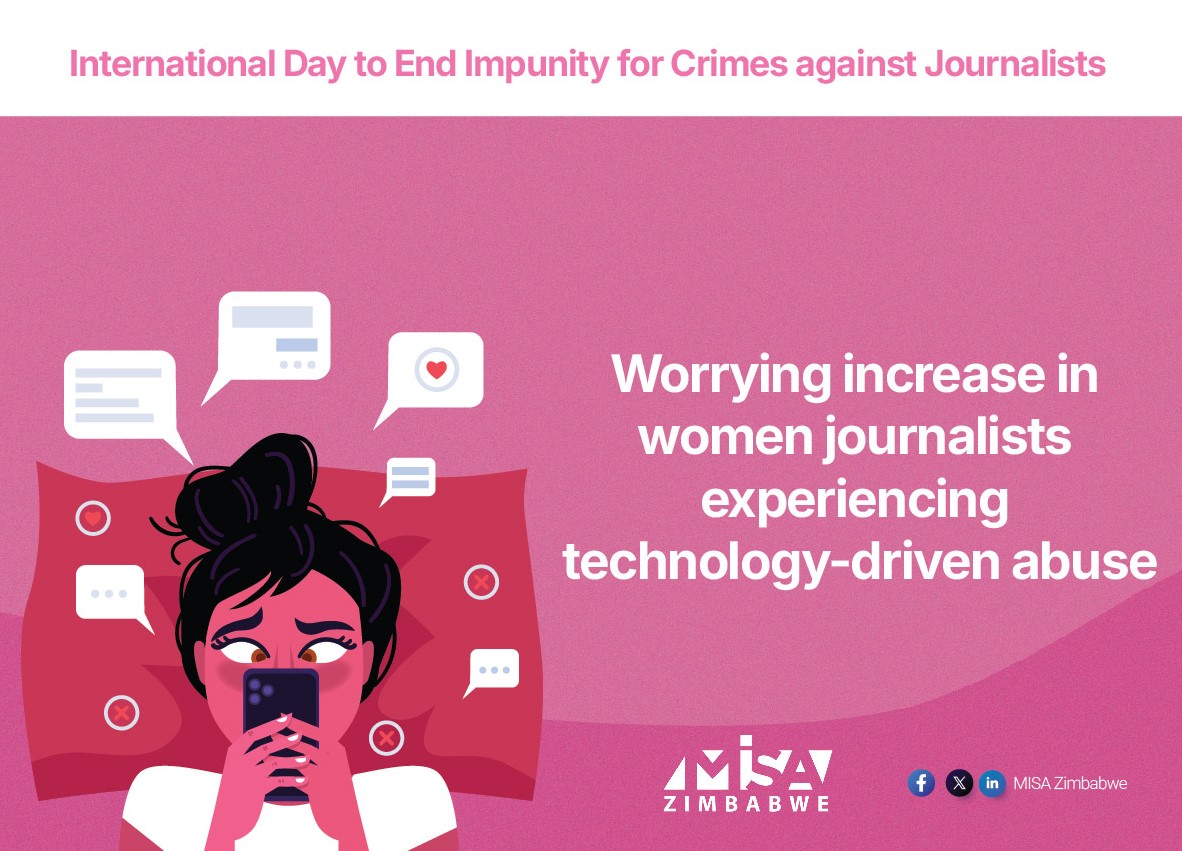25 October 2024, Monomotapa Hotel, Harare
On 25 October 2024 MISA Zimbabwe convened a Conference on AI (Artificial Intelligence) in the Age of Information Disorders during which delegates debated and deliberated on the importance of AI regulation and policy reforms in Zimbabwe.
In drawing the resolutions, the conference noted and took into consideration the following points:
Deliberations on the state of AI regulation and policy reforms, updates on the processes, policy pronouncements, requisite model laws, constitutional provisions on the same, including regional and international best practices.
The ravaging effects of AI on the media ecosystem and its implications.
Cognisant of the fact that the Constitution of Zimbabwe specifically recognises the right of every person to freedom of expression, media freedom, access to information and the right to privacy, among other fundamental rights enshrined in the Bill of Rights.
Progress made through the completion of the national artificial intelligence (AI) policy framework as part of efforts to accelerate digital transformation in Zimbabwe.
In view of the above considerations, the conference came up with the following resolutions:
- Government should allow the industry to adopt a human rights centred approach to regulation of emerging technologies that will encourage innovation first and avoid over regulation of the industry.
- Ensure the industry is committed to protect, promote and respect human rights and fundamental freedoms to safeguard present and future generations’ interests and respect cultural diversity.
- Collect and store African indigenous knowledge as part of our data harvest in preparation for the development of Afrocentric AI systems.
- Collect and create more Afrocentric and relevant data sets which will be used to create AI technologies in tune with our contexts and environments.
- Decentralise the ownership of AI technologies to ensure that the Global South is part of the revolution.
- Contextualise AI to speak to issues relevant in the African context.
- Regional and continental collaboration among Africans when it comes to AI policy development.
- Addressing the digital divide to ensure no one is left behind. In that regard, the government should proactively look into issues of data affordability and connectivity.












